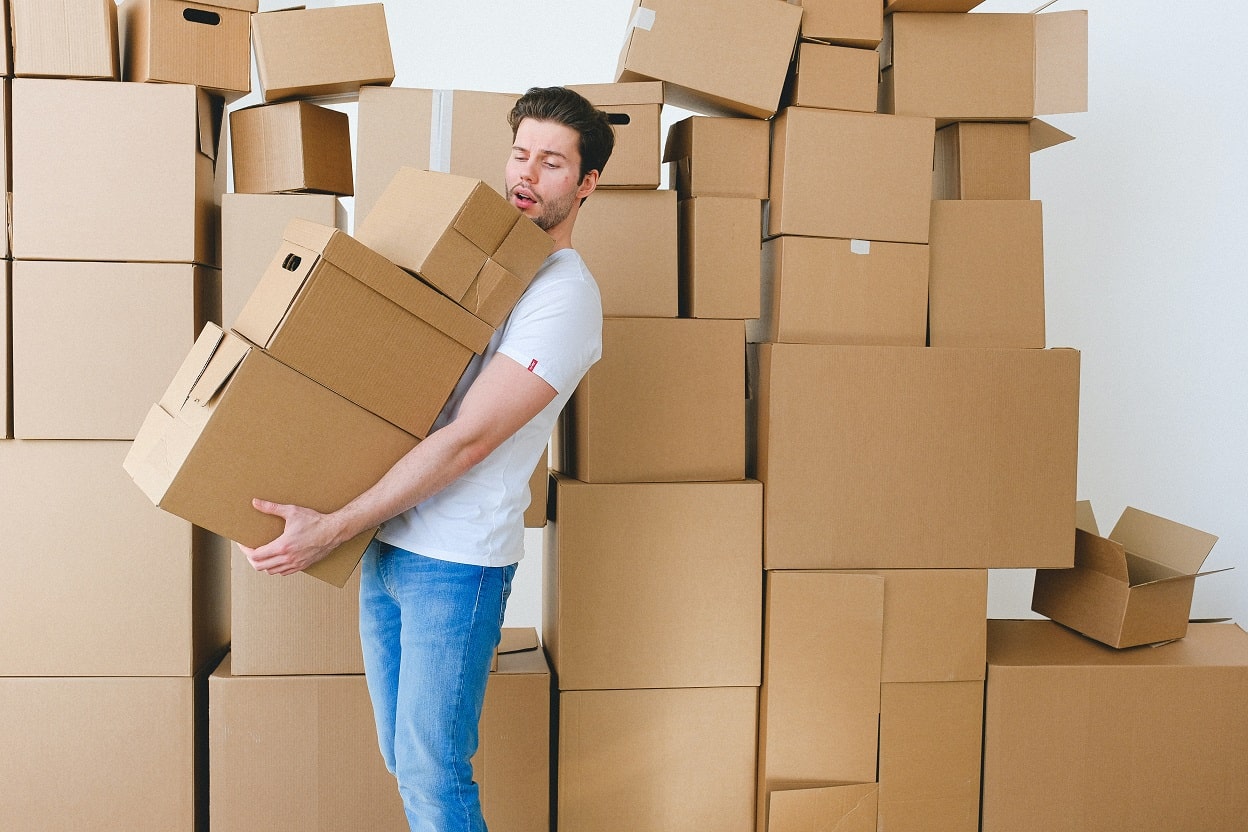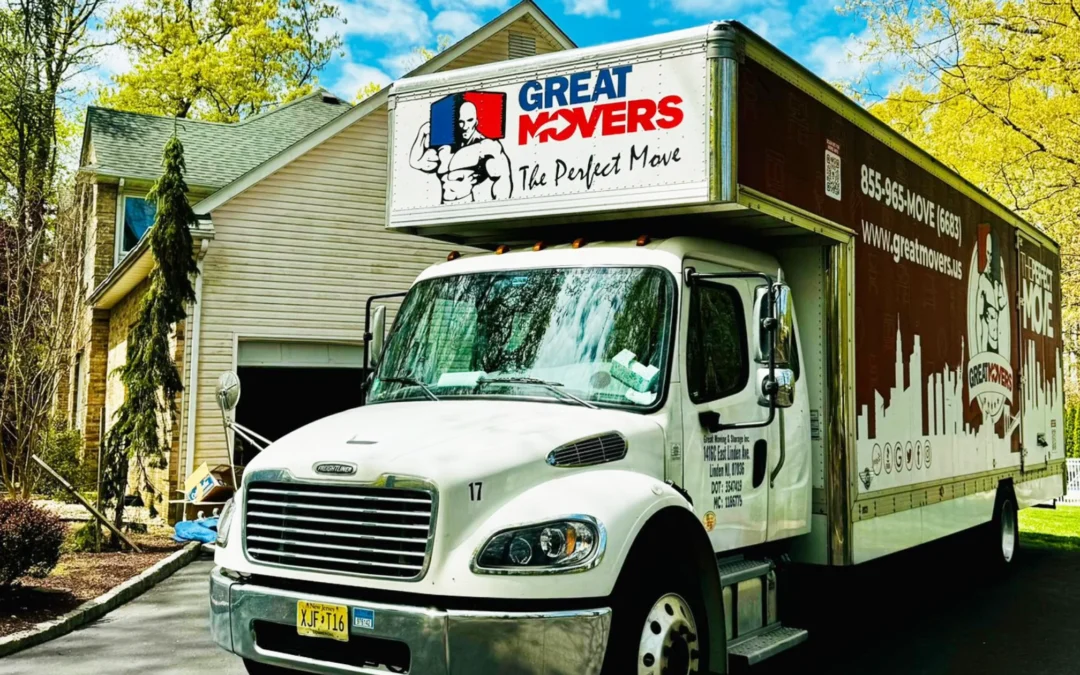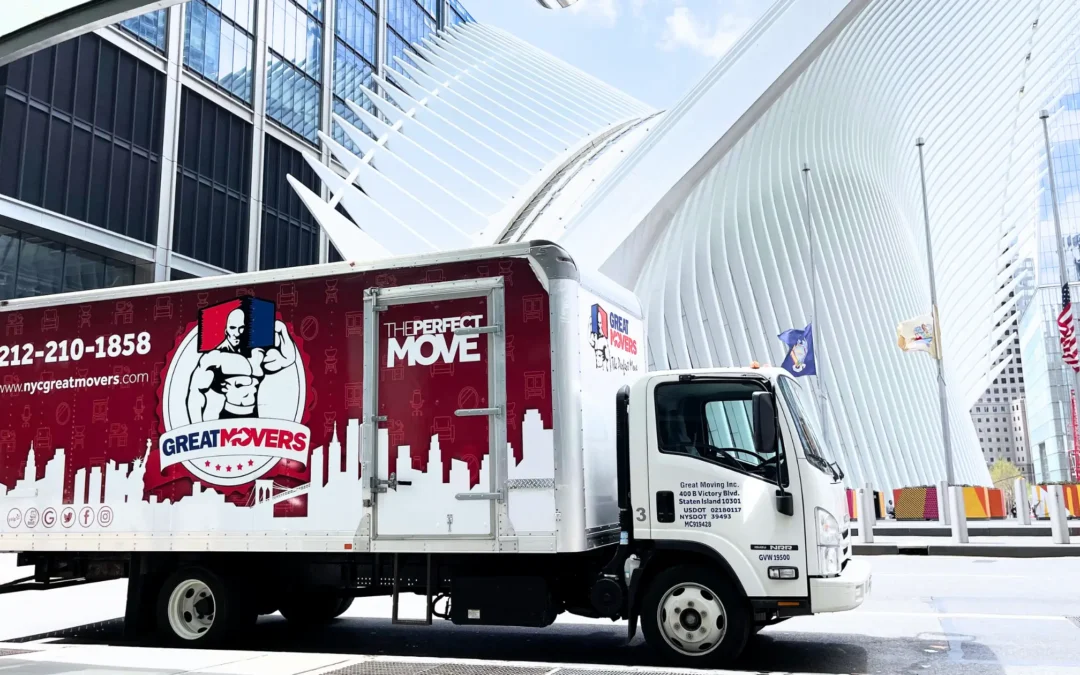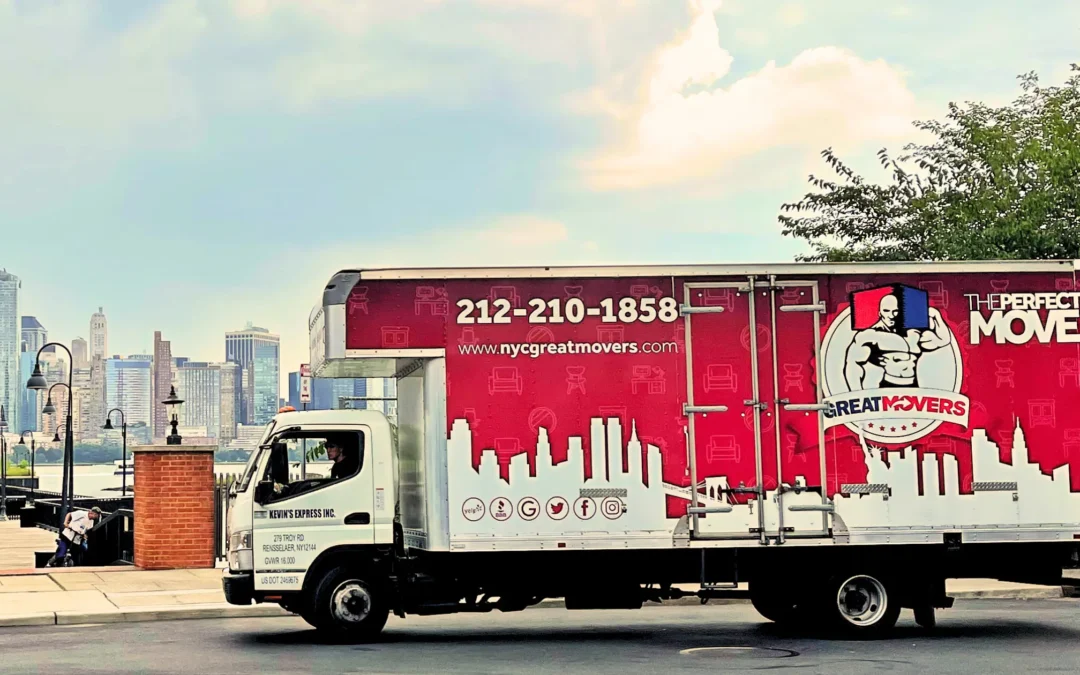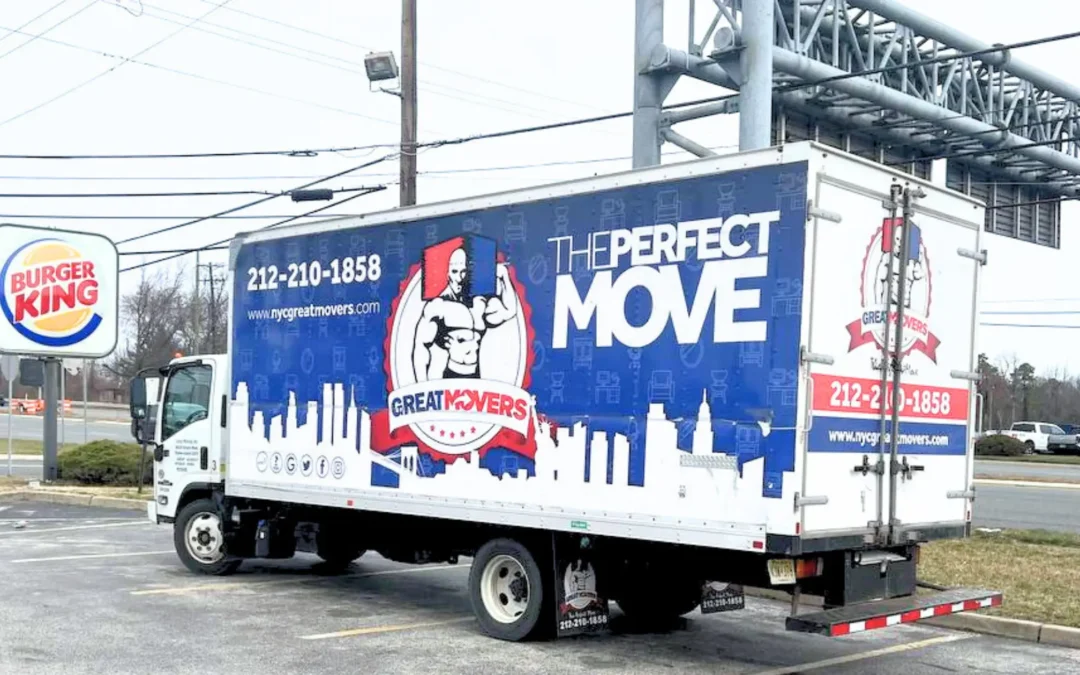Maybe you’ve had help in the past when moving thanks to friends and family, but they might not always be available to help out. When you’re living on your own, there might come a time when you’ll have to do a solo move. While it might sound daunting, moving alone doesn’t have to be as scary as it sounds. In fact, as long as you follow the below steps, your solo move might even be easier than if you had to move with others! If you’re facing a solo move right now, the sooner you start the process, the better. You’ll want to keep in mind your own physical limitations and come up with a timeline so you don’t overdo it. Keep reading for best tips on how to plan and execute your solo NYC move.
Plan in Advance
If you live in NYC, you should know when your lease is up. That gives you plenty of time to start preparing for your move. Regardless of the circumstances, moving always takes longer than you think. When you’re moving alone it can take even longer as you will have to do everything by yourself Luckily, you can start the moving process several months in advance. One of the first steps you should take is to create a master list of all your moving tasks and deadlines. Don’t leave anything out even if it seems trivial. You don’t want to forget something and have to scramble to get it done at the last minute. If you’re not sure where to get started, here are some ideas on what to include on your list:
- Getting moving boxes and other moving materials
- Set a date to throw ou/donatet whatever belongings you no longer need
- Packing each room
- Taking pictures and making an inventory of everything that will be coming with you
- Canceling or transferring utilities
- Updating your mailing address
- Research moving options – will you rent a truck or hire professional NYC movers
From now until moving day, make sure to look over your checklist and create a schedule that works for you. If you tend to work long weekdays, you might need to do all of your moving tasks on the weekend, which means you might need to start the entire process a few weeks earlier than people who can knock out a few things during the week. Remember, you don’t want to rush your move as that can lead to a ton of stress and potential issues down the line.
Create a Budget
Living on your own has its perks, but it also means you’re responsible for all the bills and that includes when make a solo move. There are a lot of factors that go into creating your personalized budget, but in general you can expect to pay anywhere between $1,000 to $6,000 on a move. Of course, that total depends on a variety of factors. Moving always tends to cost more than you estimate, so when you’re creating your budget, make sure to tack on some extra money at the end for those surprise expenses. Some basic moving costs to consider when creating your budget include:
- Cost of the actual move – decide whether you will hire professional movers or do it yourself. Both have pros and cons which will be discussed further below
- Packing materials – one box might not seem expensive, but when you end up having to purchase 10+ boxes, packing tape, and other packing items you might be surprised to see the total jump into the hundreds
- Real estate costs – you probably have to pay at least first month’s rent and security, but you might also have to pay for credit check, administrative, and even pet deposit if you have a pet
- Move-in fees – once you’ve moved into your new place there will be a lot of expenses that will pile up which could lead to you spending thousands of dollars, especially if you end up leaving behind a lot of old furniture. Keep note of everything you will need to buy in your new place and don’t forget to include things like utility set up, small expenses like toilet paper and paint, and more.
Luckily, if you planned in advance, you can reduce your overall costs by doing the following:
- Don’t pay for boxes! Reach out to local stores to see if they have any used ones they plan on throwing out. You should also save whatever boxes you received from your online orders.
- Downsize as much as possible. Be realistic about what you really need at your new place. Follow the six month rule. If you haven’t used an item in the past six months, you probably won’t use it at your new place.
- Sell as much as you can. If you have high value items that you no longer use, sell them online. While you might not get the full retail value that you paid, you can earn a few extra bucks to help out with the move. This process can take some time, so make sure to start this process as early as possible.
- Pack everything yourself unless you really don’t have time. Yes, moving companies might offer packing services, but this can add hundreds of dollars to your final bill. Save your money and do it yourself. This way you know exactly what is in every box and that your fragile items are packed away safely.
- If you got rid of a lot of your furniture, look online for good deals on used furniture. Make sure to properly fumigate it before you bring it into your new apartment as the last thing you want to deal with is an infestation.
If you’re like a lot of NYC residents, you probably know you’re going to move at least 3-4 months before the end of your lease. On top of the money-saving tips for your move, you should also set aside as much as you can every month leading up to your move. That means tightening up your belt and really cutting out every unnecessary spending like ordering takeout, buying new clothes, going out with friends, etc. With that said, moving costs in NYC aren’t cheap, so you might need to consider taking out a personal loan to pay for everything like broker’s fees, security, etc.
DIY or Professional Movers
Deciding whether to hire movers or move yourself depends on your budget, complexity of your move, and your own personality. Moving alone means you can only rely on yourself for DIY moves, which could be an issue if you have heavy furniture to move. In that case, your only option is to hire professional movers. However, if you only have some boxes to move, you might be able to move yourself. Before you make your decision, consider the follow pros and cons for each option
Moving Yourself
When you go the DIY route, you have complete control over your move. You get to choose everything from the truck to the moving supplies. Since you’re also handling everything yourself, you can ensure nothing breaks in the process. You also have more flexibility when it comes to when your move starts and ends as well as the packing process. You don’t have to put everything into boxes if you don’t want to. So long as everything is on the truck on moving day, you’re good to go! The DIY option is also great if you’re on a tight budget. Renting a van can cost as little as $40 saving you thousands of dollars. Of course, this price can increase as most truck rentals allow you to choose add-ons and loading supplies to make your move easier. One add-on you should definitely include is additional insurance just in case you get in an accident. Other add-ons you can get from truck rental locations include:
- Dollies
- Quilted pads
- Packing paper
- Edge protectors
- Plastic wrap
And more. Once you rent and/or purchase all the supplies you need, your moving costs likely doubled if not tripled. Still, when compared to hiring professional movers, you are still saving a lot of money. You can save even more by getting creative with your packing supplies. Instead of getting quilted pads, use your comforters to wrap up your furniture, for example. Of course, the downside of DIY moves is that it means you’re doing all the heavy lifting. If you’re not used to moving heavy items,, you could end up injuring yourself in the process because you twisted or lifted a box the wrong way. This could delay your move by a few days! Even if you don’t hurt yourself, you may end up scratching up walls of the building when moving. Depending on the damage and your landlord, you might have to pay for the repair. If you’re not a natural planner, then you probably will have a hard time moving yourself. While hiring professional movers requires some planning, you don’t have to worry so much about the logistics of getting your stuff from point A to point B. One of the biggest challenges for a DIY move is parking your truck. With so few parking spots in NYC, you likely won’t be able to park directly in front of your building. Sure, double parking might be an option, but if you live on a very narrow street, you would be blocking off traffic, which would lead to a ticket that could cost you hundreds of dollars. If you want to avoid a ticket, then you might need to park a few blocks away. That means exerting more energy loading and unloading your truck. Plus, the added steps could increase your chances of injury.
Professional Movers
Even though it might cost you more upfront to hire NYC movers, it could actually save you money in the long run as you won’t have to worry about paying for damages, parking tickets, or being bedridden because of an injury. While you have to do your due diligence to find the right movers, once you do find a trustworthy company, you won’t have to lift a finger on moving day. Plus, since they are professionals, they can get your move done in a matter of a few hours depending on how much stuff you have, which gives you more time to unpack and relax after the move. One other big benefit is that moving companies are insured, which is a must for many NYC apartment buildings. In some cases, you might have to hire a professional moving service because the building will require something called a certificate of insurance (COI). This form shows what insurance coverage the moving company has, which includes liability insurance, automotive insurance, umbrella insurance, and worker’s compensation. So in the event that the movers damage something in the building, they will be held liable not you. You will have to contact your current and new building manager to see if they require this form and make sure to let your movers know so they can submit it on time. Otherwise, you won’t be allowed to move in and you would need to spend extra money storing your belongings or waiting a few hours for the moving company to procure a COI for you. Of course, when you hire professional movers that also means you’re shelling out the big bucks for their expertise. You also have less flexibility when it comes to the timing of your move. With that said, this can be mitigated somewhat by calling 4-6 weeks in advance so you can at least choose your preferred move date. The company will then schedule an arrival time a few days before your move. When deciding which option to choose for your solo NYC move, it’s important to consider all the factors. For most people, hiring professional movers is a great option because it removes the hardest part of a move – loading and unloading the truck. In addition, many movers also offer free services such as basic disassembly and reassembly, dismounting your TV and air conditioner, and a few wardrobe box rentals.
Take Your Time When Packing
If there’s one moving task most people would choose as their least favorite, it would have to be packing. It’s time consuming and requires some planning. While it might be tempting to just throw everything into a box, remember that you also have to unpack everything when you get to your new place. If you just toss things in haphazardly, the unpacking process will take that much longer. You should start packing at least a month in advance of your move. That way, you’ll have plenty of time to organize your belongings. Arrange your apartment by room and/or section and start from the area that you use the least. While you’re packing, you might want to also start an inventory so you can keep track of everything you own. And don’t forget to take pictures of your breakable items. That way if they happen to break during the move, you’ll have proof that they were not already damaged beforehand. As you pack, be aware of the weight of your box. You don’t want to make the box overly heavy. Use small boxes for heavy items such as books and larger boxes for light items like your bedding. When packing, always put your heavy items at the bottom to prevent lighter ones from getting crushed. While it might be an arduous task, proper packing can lead to a lot less headaches afterwards so take your time.
Conclusion
Moving by yourself can seem daunting, but as long as you take actionable steps every day for a few months, you should be able to manage it with ease. With that said, there’s no reason you need to do everything by yourself. Delegate the more strenuous task of loading and unloading your stuff to professional movers like us!
FAQ
How far in advance should I hire professional movers?
In general, you should book a mover about 4-6 weeks before your move. If you’re moving during peak season (April-August) you should try to hire them around 2 months beforehand.
What happens if my apartment isn’t ready to move in by the time I have to move out of my old place?
You should store your belongings with a friend or rent a storage unit. Many movers also offer a storage option.
How can I make my move easier?
Create checklists, plan out your budget, make an inventory of all your belongings, write in calendar reminders, etc. to stay on top of everything.

